|
The late 19th century brought a catastrophic turn. At the 1884-85 Berlin Conference, European powers carved up Africa without any regard for its people. In an act of unparalleled diplomatic cunning and deceit, King Leopold II of Belgium (below) persuaded the world to grant him personal control over the entire Congo Basin, an area 76 times larger than Belgium. He named it the Congo Free State.
International outrage, fueled by the investigative work of journalists like Edmund Morel and the harrowing report of diplomat Roger Casement, eventually forced Leopold to cede his private fiefdom to the Belgian state in 1908. While the worst of the "Red Rubber" atrocities subsided under the Belgian Congo, the system remained one of harsh economic exploitation (see railway building below in 1920) and paternalistic racism. The Congolese were denied political rights and access to higher education, a deliberate policy that would have devastating consequences at the dawn of independence. By the late 1950s, the "wind of change" was sweeping across Africa, and a powerful independence movement emerged in the Congo, led by the charismatic pan-Africanist Patrice Lumumba. Belgium, caught off guard, hastily granted independence on June 30, 1960, however the new nation was completely unprepared. With only a handful of university graduates and no experienced political or military leaders, the Democratic Republic of Congo immediately plunged into chaos. The army mutinied, the mineral-rich province of Katanga seceded with Belgian support, and the world’s superpowers turned the nation into a Cold War battleground. Lumumba, as Prime Minister, sought UN and later Soviet assistance to unify the country, a move that sealed his fate with the West. In January 1961, he was overthrown and brutally assassinated in a plot involving Congolese rivals with complicity from Belgian and American intelligence agencies. |
DR Congo History |
DR Congo History |
DR Congo History | DR Congo History |
Explore all about the Democratic Republic of Congo in a series of pictures, videos and images.
More >
|
|

|
The chaos of the Congo Crisis culminated in a 1965 coup led by Army Chief Joseph-Désiré Mobutu (below). Backed by the West as a bulwark against communism, Mobutu would rule for 32 years. He renamed the country Zaire and embarked on a cultural program of 'Authenticité' to erase colonial influences. Behind this nationalistic facade, Mobutu established one of history's most notorious kleptocracies. He and his elite embezzled billions of dollars from the state treasury while the country's infrastructure crumbled. When the Cold War ended, Mobutu lost his strategic importance to the West, and his regime weakened. In 1997, he was overthrown by a rebellion led by Laurent-Désiré Kabila, who was supported by Rwanda and Uganda. Kabila renamed the country back to the DRC, but hope for a new era was short-lived. When he fell out with his former allies, the nation was plunged into the Second Congo War (1998-2003) a war that involved nine African countries and some twenty armed groups. The basis of the conflict was that Rwanda and Uganda wanted to control the perceived riches of the Democratic Republic of Congo having installed Kabila The war took the lives of around 5,400,000 people, mostly through disease; the most causalities of any war in Earth's history, save for the Second World War. It was a war that still simmers today particularly in the east of the country where troops from Uganda have recently been deployed. The Sun City Agreement provided a path for providing the Democratic Republic of Congo with a multi-party government and a timeline for democratic elections allowing Joseph Kabila to remain president for a transition period of two years, extendable to three, with the leader of the Movement for the Liberation of the Congo, Jean-Pierre Bemba, as prime minister in the transitional government both to remain in office until democratic elections could be held for the first time since independence in 1960.
Despite this apparent stability with increasing foreign investment, conflict and murder is ongoing, particularly in the east of the country. The Democratic Republic of Congo itself has been described as more of a geographical concept than a proper nation; a nation that's sitting on a bed of an estimated twenty-four trillion US dollars of natural resources making it a land people are prepared to fight and die for. The video (above) charts the history of the Democratic Republic of Congo from colonial days to its more recent past in what is not just a catalogue of murders, assassinations and failed politics, but an unfolding and seemingly everlasting tragedy for the country's 112.8 million inhabitants (2025.) |
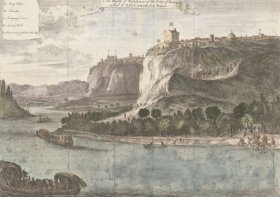 These pre-colonial societies were far from the "uncivilised" lands depicted in colonial propaganda; they were centres of political power, extensive trade networks, and rich artistic traditions. Among the most prominent was the Kingdom of Kongo (right), which emerged in the 14th century near the mouth of the Congo River. Governed by a powerful monarch, the Manikongo, the kingdom had a sophisticated political structure, a currency based on seashells, and a thriving economy built on trade in ivory, copper, and textiles. Its initial contact with the Portuguese in the late 15th century was one of mutual curiosity, but this relationship soured as the transatlantic slave trade grew, ultimately destabilising and weakening the kingdom from within. (1617 map of the Congo below.)
These pre-colonial societies were far from the "uncivilised" lands depicted in colonial propaganda; they were centres of political power, extensive trade networks, and rich artistic traditions. Among the most prominent was the Kingdom of Kongo (right), which emerged in the 14th century near the mouth of the Congo River. Governed by a powerful monarch, the Manikongo, the kingdom had a sophisticated political structure, a currency based on seashells, and a thriving economy built on trade in ivory, copper, and textiles. Its initial contact with the Portuguese in the late 15th century was one of mutual curiosity, but this relationship soured as the transatlantic slave trade grew, ultimately destabilising and weakening the kingdom from within. (1617 map of the Congo below.)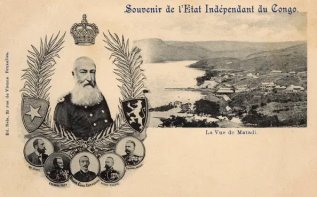 What followed was not colonisation in the traditional sense, but a genocidal enterprise of private plunder. Under the guise of a humanitarian mission, Leopold unleashed a reign of terror to extract rubber and ivory. A private army, the Force Publique, forced Congolese men, women, and children into brutal labour. Those who failed to meet impossible quotas were flogged, imprisoned, or killed. The practice of severing the hands of workers - or their children - as punishment became the terrifying symbol of the regime’s inhumanity. It is estimated that up to 10 million Congolese, perhaps half the population, perished from murder, starvation, and disease during this period.
What followed was not colonisation in the traditional sense, but a genocidal enterprise of private plunder. Under the guise of a humanitarian mission, Leopold unleashed a reign of terror to extract rubber and ivory. A private army, the Force Publique, forced Congolese men, women, and children into brutal labour. Those who failed to meet impossible quotas were flogged, imprisoned, or killed. The practice of severing the hands of workers - or their children - as punishment became the terrifying symbol of the regime’s inhumanity. It is estimated that up to 10 million Congolese, perhaps half the population, perished from murder, starvation, and disease during this period.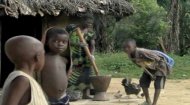
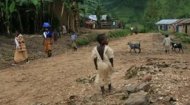

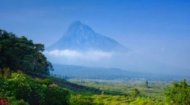
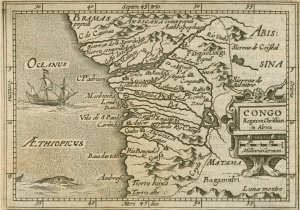
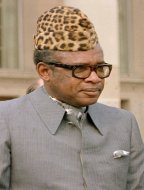 as president only to find he wanted their troops out of the country fearing they would in turn oust him and install a Tutsi subservient to Rwanda's President Paul Kagame. The war itself, which was to outlast Kabila after he was assassinated in 2001 to be replaced by his son Joseph, lasted 4 years, 11 months, 2 weeks and 2 days and officially' ended with the signing of the Sun City Agreement on 19th April 2002 although the violence lasted for a further year and continues to this day with armed groups continuing to operate in the country.
as president only to find he wanted their troops out of the country fearing they would in turn oust him and install a Tutsi subservient to Rwanda's President Paul Kagame. The war itself, which was to outlast Kabila after he was assassinated in 2001 to be replaced by his son Joseph, lasted 4 years, 11 months, 2 weeks and 2 days and officially' ended with the signing of the Sun City Agreement on 19th April 2002 although the violence lasted for a further year and continues to this day with armed groups continuing to operate in the country.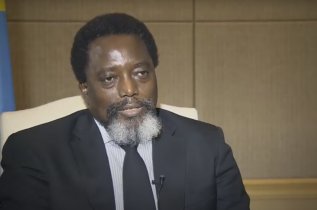 It was also agreed that Kabila (right) would have four vice-presidents - one from each of the two main armed opposition movements, one from the government and one from the unarmed political opposition. It was also agreed that ministries would be divided up and former opposition fighters would be integrated into the army and police. In 2003 the transitional parliament met and in 2005 they adopted a new constitution which was approved by voters in December of that year leading to Presidential and parliamentary elections in July 2006 which proved inconclusive leading to a further run-off election in October 2006 between Joseph Kabila and opposition candidate Jean-Pierre Bemba. Kabila was declared the winner, and he remained in post however declared in August 2018 that he would step down and not seek re-election in the December general election of that year. In November 2021, judicial authorities in Kinshasa launched a formal investigation into his conduct in office, and that of his close associates, following allegations of the misappropriation of US$138 million in public funds. He was succeeded by Félix Tshisekedi in the country's first peaceful transition of power (though highly disputed) since independence.
It was also agreed that Kabila (right) would have four vice-presidents - one from each of the two main armed opposition movements, one from the government and one from the unarmed political opposition. It was also agreed that ministries would be divided up and former opposition fighters would be integrated into the army and police. In 2003 the transitional parliament met and in 2005 they adopted a new constitution which was approved by voters in December of that year leading to Presidential and parliamentary elections in July 2006 which proved inconclusive leading to a further run-off election in October 2006 between Joseph Kabila and opposition candidate Jean-Pierre Bemba. Kabila was declared the winner, and he remained in post however declared in August 2018 that he would step down and not seek re-election in the December general election of that year. In November 2021, judicial authorities in Kinshasa launched a formal investigation into his conduct in office, and that of his close associates, following allegations of the misappropriation of US$138 million in public funds. He was succeeded by Félix Tshisekedi in the country's first peaceful transition of power (though highly disputed) since independence.


